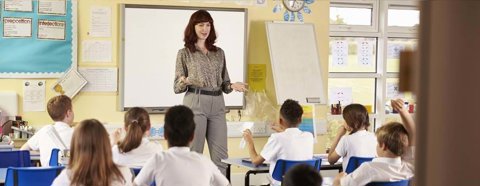What’s Happening?
As part of the Government’s consultation, it hoped to help inform its review of the behaviour and discipline guidance, as well as the suspensions and permanent exclusions guidance, with the Department for Education (DfE) is calling for evidence on behaviour management strategies, banning mobile phones from the school day, ‘removal rooms’, in-school units and managed moves.
Removal rooms, as characterised in the consultation, are more commonly known as isolation rooms or booths.
Dan Rosenberg, an education solicitor at Simpson Millar said the lack of exposure on the matter of ‘removal rooms’ was a concern, saying it was vital that anyone with any experience or insight into the use of such disciplinary measures responded before the August deadline.
A leading education law expert who has represented the families of numerous children impacted by the issue, including a girl with ASD who actually tried to kill herself whilst in an isolation booth, Dan says of particular concern is their use not for brief ‘time outs’ to deal with disruption in the moment and to allow children to calm down, but as sanctions in a planned and pre-meditated way.
Dan Rosenberg from Simpson Millar said: “Children, and especially children with challenging behaviour or who have a range of special needs, are suffering as a result of the use of so called ‘removal rooms’. In many cases, they are being forced to sit in silence and without any actual teaching for whole days.
“While this consultation is arguably too late to help many thousands of children who have already had their education blighted and their mental wellbeing damaged by the use of such disciplinary measures, we welcome the Government’s attempt to seek input.
“Of course, the mobile phone matter has dominated the headlines, but it’s essential that the public understand that the use of extreme measures – which are often doled out too freely, and without oversight or safeguards- to manage the behaviour of children is also under review.
“It is absolutely vital that people who have personal or professional insight into the damaging impact that the misuse of such behaviour management strategies can have on children contribute so that a sensible and realistic guidance is put in place.”

Why It Matters
In 2020, an evidence review published by the Centre for Mental Health shone a light on the issue when it revealed that school seclusion, restraint, and exclusion are leading factors in increasing trauma in children with mental health difficulties.
According to the report, the use of these restrictive interventions can make the problems they seek to resolve worse, creating a vicious circle of trauma, challenging behaviour, restriction, and psychological harm.
However, it goes on to say that every year thousands of children are subject to restrictive interventions in schools, putting their mental health at risk whether they have suffered traumas or not.
As part of the review carried out by the Centre for Mental Health it also found that young people showing challenging behaviour in school are more likely to have experienced past traumas and that if they are subjected to seclusion, restraint or exclusion, that experience can mirror the traumatic events that happened to them further increasing the likelihood of more challenging behaviour and an escalation of the cycle.
Being put in an isolation room can therefore be really traumatising for young people, particularly when it comes to children with Special and Educational Needs (SEN), who may not understand why they have been isolated from their peers, meaning they are then left confused and alone.
Final Thoughts
Dan added: “The biggest issue at stake here is the practice of isolation rooms and the large number of children negatively affected by the use of this ineffective solution to behavioural problems.
“What’s more, the use of isolation booths means that children are missing large amounts of education which will only go on to negatively impact their future.
“Further to this consultation the DfE’s needs to produce guidance that is fit for purpose, and that stops the poor practices in schools which currently appear to be very widespread.”
Referring to the consultation the DfE said it wanted to ‘understand how we can improve the experiences of all children and young people in school’, as well as ‘create a culture where all pupils and staff feel safe, where they feel wanted and welcomed, and where they can reach their full potential’.
“Every child has the right to an education, and to feel safe. I hope the outcome of this consultation serves to ensure that happens.”
With recent conversations being brought up about the mental health struggles young people are increasingly facing these days, it’s more important than ever to ensure that the education system is working for children, rather than against them, in every way possible. Years on from the Government consultation, our Education Lawyers continue to see situations where children are unlawfully isolated from their peers in context of their education.








